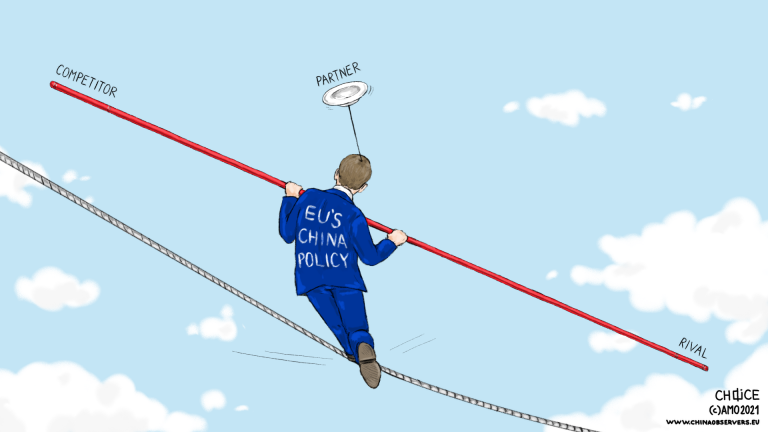
This article was originally published in The Diplomat.
It was stunning to many observers seeing pictures from Hungary of thousands of people marching in the streets protesting the government plan to build the overseas campus of Fudan University in Budapest using taxpayers money. Only days before, Budapest mayor Gergely Karácsony attracted the international attention when he renamed the streets around the campus site to hold names such as the “Dalai Lama street”, “Free Hong Kong road”, “Uyghur Martyrs’ road” and “Bishop Xie Shiguang Road”.
Over the previous years, Hungary under Viktor Orbán has become one of the most China-friendly EU countries, repeatedly preventing the EU from adopting critical remarks on China (which require consensus among the EU members). That might change, however: for the first time in a decade, Orbán is facing a possibility of losing to the opposition in parliamentary elections next year. And the opposition finally expresses very different thoughts on China – which, actually, are more aligned with the Hungarian public opinion.
According to the Sinophone Borderlands survey from Autumn 2020, Hungarian public has very different attitudes towards China compared to its government. Overall, almost 50 per cent of Hungarian respondents held either negative or very negative views of China, while only about 25 per cent held positive or very positive. This makes Hungarian public being more negative about China than, for instance, Poles, Slovaks, Italians or Spanish – and not much different from others such as Germans or the French (see Chart 1). These findings certainly don’t make Hungary such an outlier as its official foreign policy might suggest.
Source: Sinophone Borderlands survey (2020)
Indeed, there is little support among Hungarians for Orbán’s policies towards China: only about one fifth of the respondents declared that they were satisfied with the activity of prime minister towards China, while more than one third was dissatisfied (the rest being neutral) (see Chart 2).
Source: Sinophone Borderlands survey (2020)
While we didn’t ask in the survey about the relatively recent project of Fudan University, we did include the question on another project of similar amount of money meant to operate with the similar pattern of Chinese loan paid for by Hungarian taxpayer’s money – the reconstruction of Budapest-Belgrade railway. Here, the level of dissatisfaction is even higher – about 45 per cent of respondents were dissatisfied, while only less than 15 per cent were satisfied. Even more visible than in the previous question, a significant share of the respondents expressed “strong” dissatisfaction, while the share of those having neutral views was now smaller than those being dissatisfied (Chart 3).
Source: Sinophone Borderlands survey (2020)
Zooming in the political divisions, Hungarians satisfied with PM Orbán are more positive about China than those who are dissatisfied with Orbán. While the difference is large, it is worth noting that even the supporters of the prime minister are more negative than positive of China (see Chart 2).
Source: Sinophone Borderlands survey (2020)
To sum up, more than ten years of (sometimes very high-profile) China-friendly attitudes of PM Orbán led to some domestic divisions in terms of how his supporters and the opponents perceive China. However, even Orbán’s supporters seem to be predominantly negative about China and dissatisfied with his China policies. When combined with the sizeable numbers of Orbán’s opponents who are strongly dissatisfied, we begin to understand the recent public protests in Budapest. China may become a political issue in Hungarian domestic politics and the opposition can appeal to the dissatisfied public by aligning more closely to the general sentiment on China than PM Orbán.
Written by
Richard Q. Turcsányi
RQTurcsanyiRichard Q. Turcsányi is a Senior Researcher at Palacky University Olomouc, an Assistant Professor at Mendel University in Brno, and Program Director at the Central European Institute of Asian Studies (CEIAS) in Bratislava.
Matej Šimalčík
MatejSimalcikMatej Šimalčík is Executive Director of the Central European Institute of Asian Studies, a think tank based in Slovakia, and a European China Policy Fellow at MERICS. He is a member of MapInfluenCE, a regional initiative aimed at monitoring China’s economic and political influence in Central Europe, where he acts as an analyst for Slovakia.

